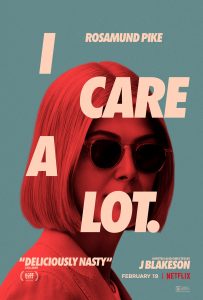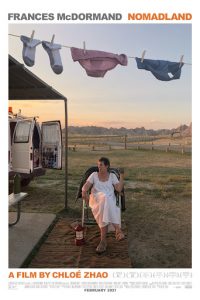Hello and welcome to my Bryn Mawr Blog. This is Jaclyn. I will share with you what I’ve been doing in the four-day Spring Pause. Before COVID-19, Bryn Mawr had Spring Break (or Fall Break in the fall semester) which is a full week off in the middle of the semester during which people rest and travel. But after COVID, it’s unsafe to travel so the Fall break was cancelled when the school was reopened last semester. But it was quite exhausting for both students and professors to last a non-stop 14-week semester. Thus, there will be a short break in the spring semester but instead of a full week off, we will only have four days off as a way to rest and recover from the demanding academic life. I will divide the post into two parts. This post covers the academic side while the next one will cover the extracurricular aspect.
Fundamentals of Acting
This is an introduction to acting class. We will analyze a play every week and do basic exercises of acting and performance. The assignment for the Spring Pause is to work on a scene in which we tell a true story of another student. Other than that, the professor also suggests some resources that we can watch and learn from.
The first one is called Pandemic, a radio play written by a high school Asian girl. The story is around the conversation between a young Asian teenager and her dying Asian grandfather. It provides perspective to racism from two generations in how they view the same racist event in the same or different ways. When her grandpa was young, his parents were deported and now the situations for Asian like his granddaughter is much better but it seems that so much is changed and yet so little has changed.
Another resource is The Manic Monologues, a play that focuses on mental health. The scripts are true stories from people who suffer from mental illness in real life but they were told and performed by actors. The one that is performed by my professor is a person who suffers from hallucinations: she was able to see ghosts or spirits. Her family has a history of mental illness and several of her relatives suffer from mental illness. The protagonist chooses to believe that it’s hallucination because the other theory is scarier for her. It actually reveals a big criticism to the Western-oriented psychology and its attitude toward mental illness. A documentary called Crazywise explores this topic and documents several indigenous cultures and how they view symptoms of mental illness.
Lab in Social Psychology
It’s a writing-intensive lab course in social psychology and it’s a half semester course, which means that I will turn in the final report during the Spring Pause. Every psychology major student is required to take at least two labs and this is my second one. I was quite frightened to take lab, because academic writing can seem very intimidating but also at the same time overly redundant. But after taking these two lab courses, I feel more confident with academic writing and it even helps with me reading research paper. Because I used to be intimidated by how long a research paper could be and don’t want to even start. But after learning rules of writing one, I recognize which part that I need read word by word and which parts that only require skimming. It’s also quite a demanding and fast-pacing course, since it only lasts for the first half semester, which is seven weeks. There are two options to turn in the final report, either due on the Friday before the Spring Pause or on Tuesday at the end of the Spring Pause. I have the tendency to procrastinate and when I do, my mind becomes anxious about how ineffective I am. To avoid such situations from happening, I choose the earlier deadline. I will finish working on the final report early and enjoy the break.
Caring for Aging America
I’m taking a class called Caring for Aging America from the Graduate School of Social Work and Social Research at Bryn Mawr. It’s a class that focuses on older adults in America. We talk about ageism, social isolation, dementia, mental health issues, etc. Two interesting movies are mentioned both by the professor and classmates because they address some topics that we covered in class. Since it was during the Spring Pause, I thought it’d be a good idea to watch these movies.
I Care A Lot tells the story of a guardian who takes advantage of the guardianship system to take advantage of older adults with money but no families or relatives. She collaborates with doctors who lie about symptoms for dementia and take guardianship for these older adults, which means that they are forced to live in a senior facility and they are cut off from any connection to the outside world. It provides an interesting look into the guardianship system and in class we discuss the now new system of supported decision-making for older adults with aging-related cognitive decline. As for the movie itself, I like seeing female con-artist on screen and I’d love to see more representations of similar female characters.

Nomadland is a movie that I wanted to see for a long time, not only because it was directed by a Chinese female director, but also it touches on a population of older adults living in their vans whose stories are not often heard. I’ve listed things in bullet points that draw my attention.
- van life
The van life isn’t a stranger to me but how I view van life is more like young people who care about the environment purposefully choose this lifestyle. But I didn’t know that such a big population of older adults are almost forced to live in their vans. But I also recognize that even this van lifestyle is a privilege for white people, given that the U.S. highway system is inherently racist.
- Older Adults Representation
I’m glad to see real representations of older adults on screen, especially older women. I saw the saggy neck skin of older women, which is almost never seen on screen. Except from Frances McDormand who plays Fern, almost all the other characters are real older people who live the van life.
- Grief and Loss
I see that this is a movie about how people deal with trauma and grief. Fern just lost her husband and the town she lived in and worked at for decades. She is in grief and we see that the way she deals with that is by moving on the road and serving other people.
- Buddhist Ideas
I also see some seeds of Buddhist ideas like there is no permanent goodbye, we will see each other again in some ways.

558 Managing the Work
This is a class about management in the field of social work so I interview two managers. One of them is a friend of my mom and she is middle management in a bank and the other one is an Asian female social worker who’s working on her Ph.D. at Bryn Mawr. I won’t go into details for the interview but they are both amazing and inspiring women and I feel so honored to have the opportunity to talk to and learn from them.
Stay tuned for the next post about summer internship application and what I do for fun in Bryn Mawr Town.
